Kindergarten
Sri Ayesha kindergarten and pre-school curriculum is based on the philosophy and methodology of Montessori and is designed to engage children in thoughtful pursuits and encourage a life-long love of learning. Through collaboration with their classmates and Sri Ayesha trained teachers; children learn the value of trust and respect.
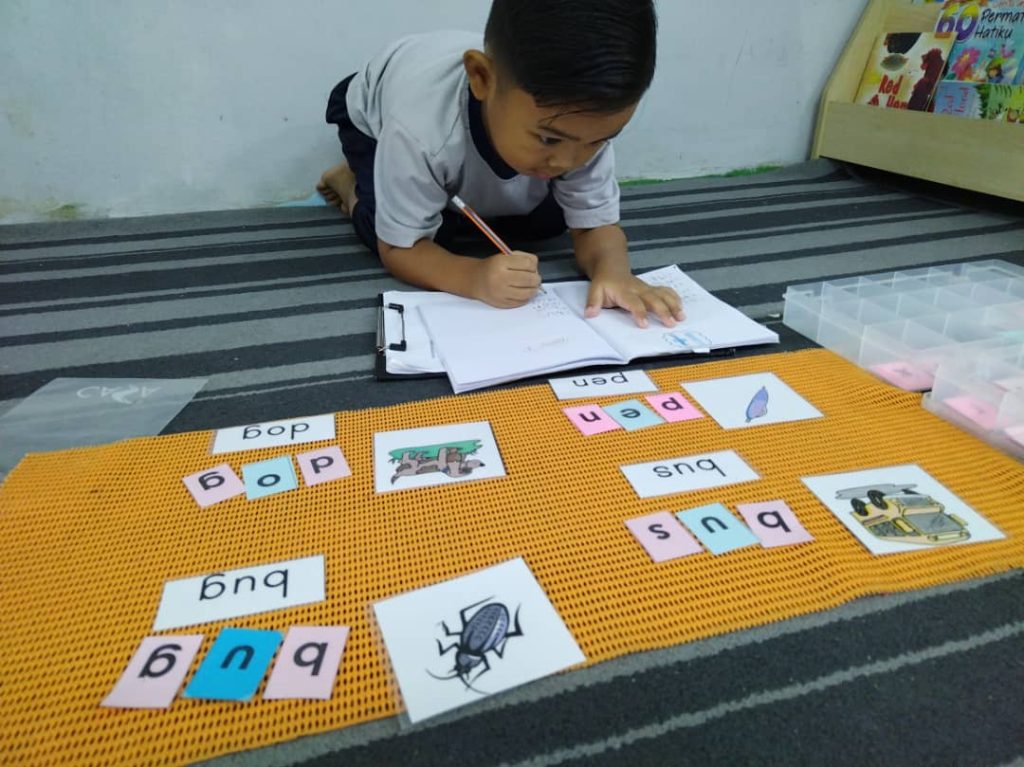
Introduction
The program is organised into small classrooms that reflect Montessori in different stages of development and principles of education. Child-centered places filled with hands-on activities that develop academic skills, problem-solving strategies and concentration.
For kindergarten level, Sri Ayesha is using the Montessori syllabus with basic Islamic lessons blended using the same method.
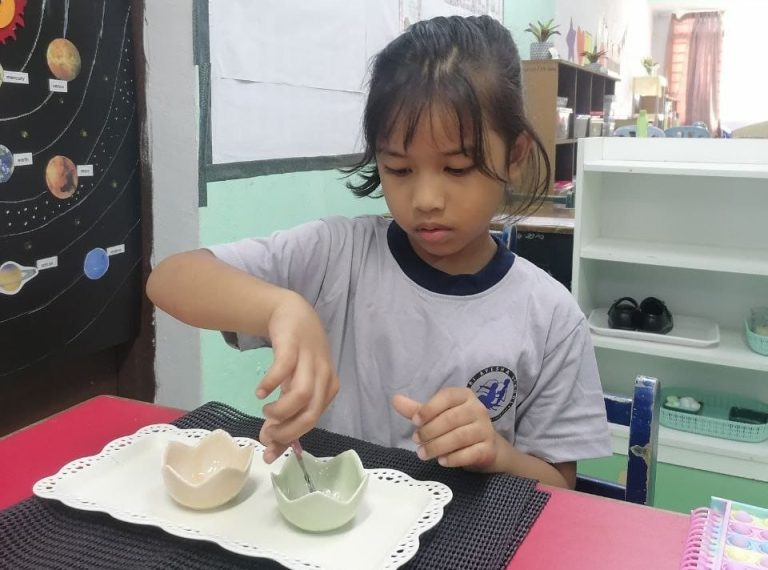
Practical Life
The exercises of Practical Life encourage independence, concentration, order and coordination. They instill within the child’s care for themselves, for others and for their environment. Activities of daily living such as pouring, sweeping, scrubbing and polishing will enable development of muscular coordination, self-discipline and the intelligent direction of movement or ‘will.
Also included are practical ibadah and the exercises of grace and courtesy using Islamic principles. These cooperative effort encourage comfortable Islamic routine such as solat and zikir. In addition, respect and helpfulness which are essential to a child’s social skills deveploment and emerging sense of community with others can be installed within them through positive activities while performing their practical ibadah.
Sensorial
The sensorial materials are tools for the development of the senses. This enables the child to order and classify his environment with cognitive efficacy. Exercises in touching, seeing, listening, smelling and tasting refine the senses and lead to a higher level of exploration and greater understanding and appreciation of the world. These activities and others prepare the child for the academic area – math and language, just to name a few.
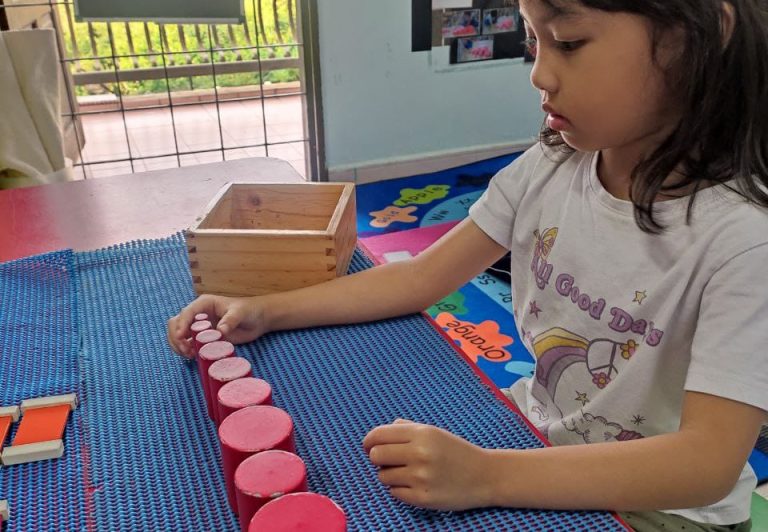
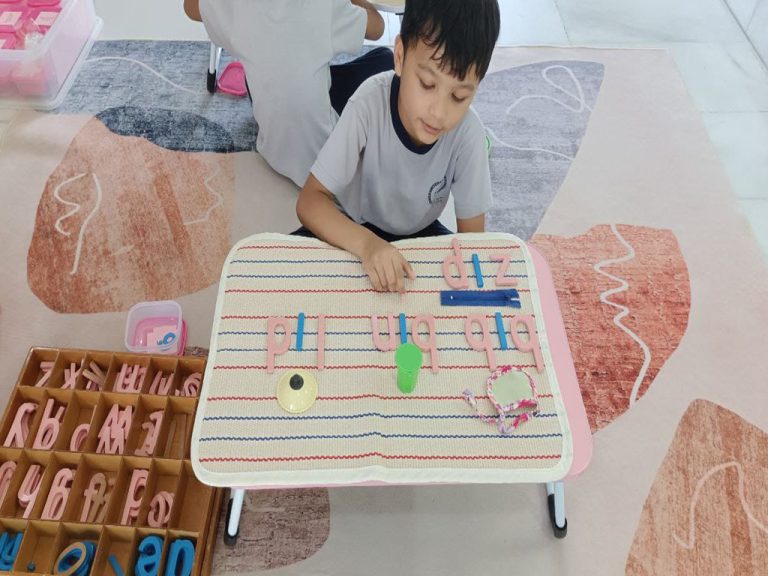
Language
The development of language is essential to the human experience. It is through language that we share our ideas, our knowledge and indeed our souls with one another. The classroom offers a precise and rich approach to language development. It is not uncommon for a child to begin to share ideas first verbally and then by writing. They flow into reading as an extension of their desire to share and explore experiences.
We teach reading phonetically where the child is first introduced to the sounds of the letters, then he is shown how to listen for the sounds at the beginning, ending and in the middle of words. The blending of sounds and the formation of simple words comes next. Each step gently leads to the next one. As the child moves through the materials, his confidence and desire grows until the child experiences an ‘explosion’ into writing and reading. His determination to express himself motivated his progress and his progress will therefore build his self-confidence.
Culture Extensions
Language and sensorial are extended within the classroom through the activities of culture. History, geography, biology, botany, zoology, science, art and music are presented to the child in a sequenced, experiential format. This ‘Cosmic Curriculum’ is boundless and allows children to flourish in a rich environment. They explore their own and other cultures, past and present. This encourages the expression of their love for humanity to rise and extend to a full appreciation of the global community.
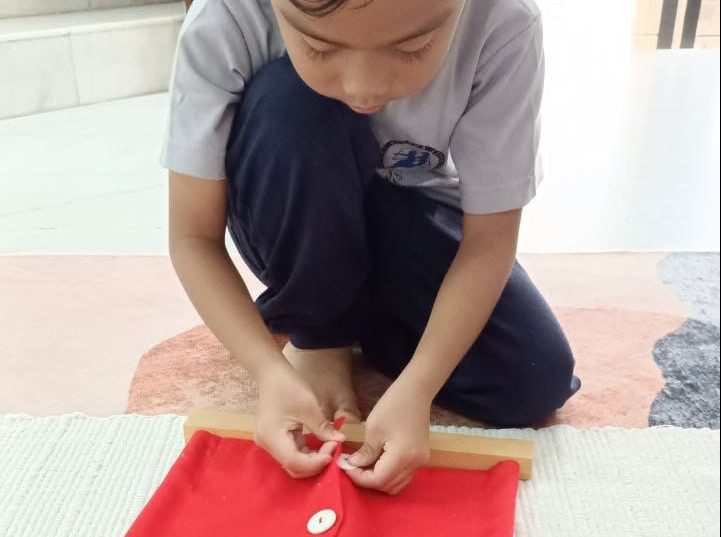
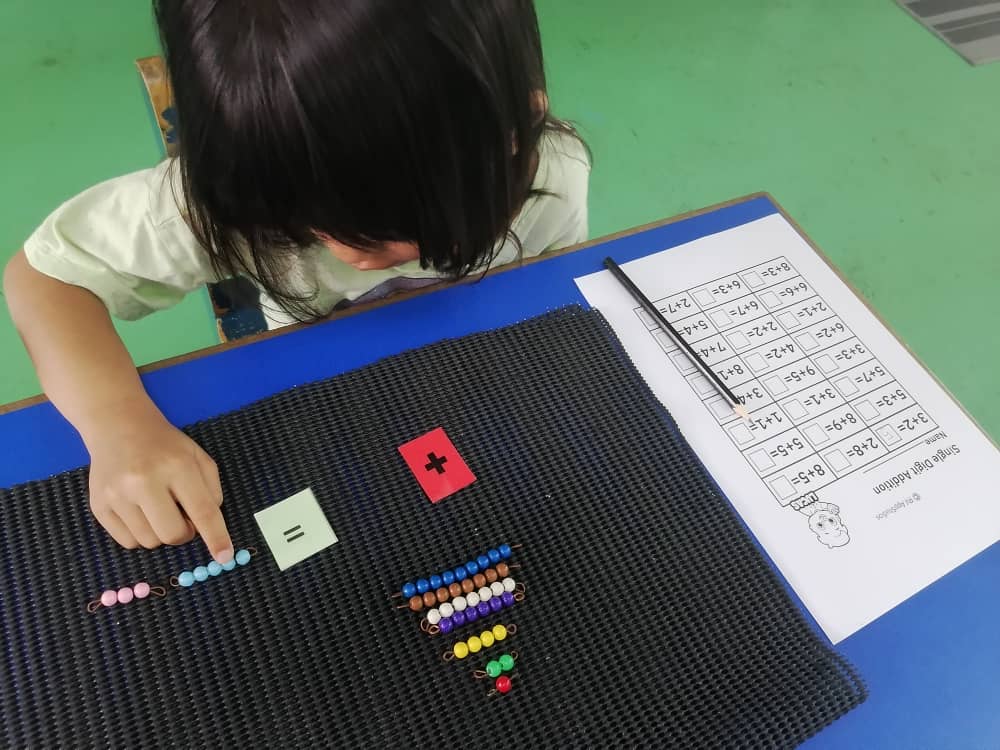
Mathematics
The math materials start with the concrete presentation of various mathematical concepts. The child, working with the materials, develops an understanding of quantities, symbols, the decimal system and of the basic operations; addition, subtraction, multiplication and division. This understanding is very concrete at first but eventually provides a solid base for the abstraction of these concepts.
The child moves step by step through the materials, practicing each step and building on his learning experiences starting with the concrete and leading towards the abstract. This provides the child with a solid foundation for future learning and a structural scope for abstract reasoning.
The child, more than anyone else, is a spontaneous observer of nature. – Maria Montessori
A Passion For Learning
Fostering creativity and the capacity of dynamic, independent and critical thought.
